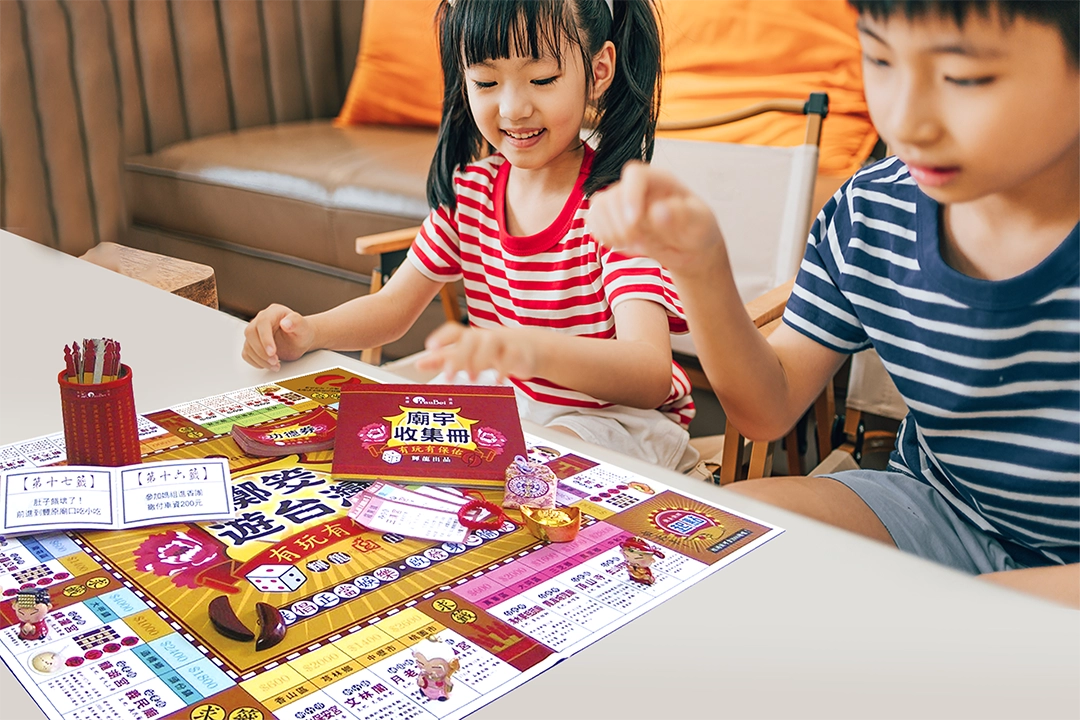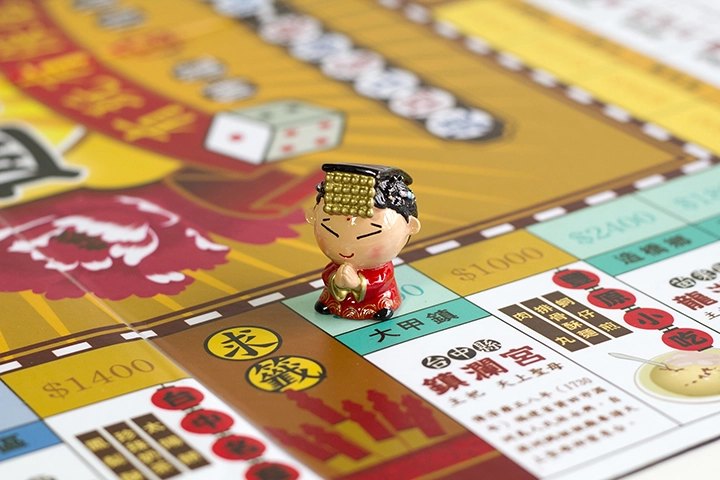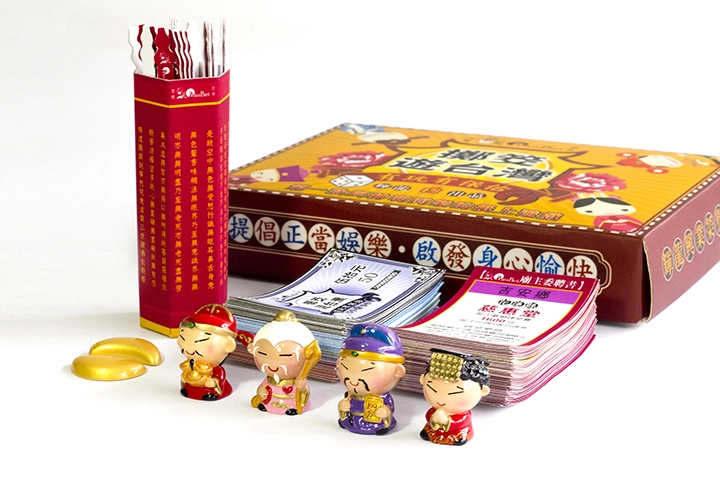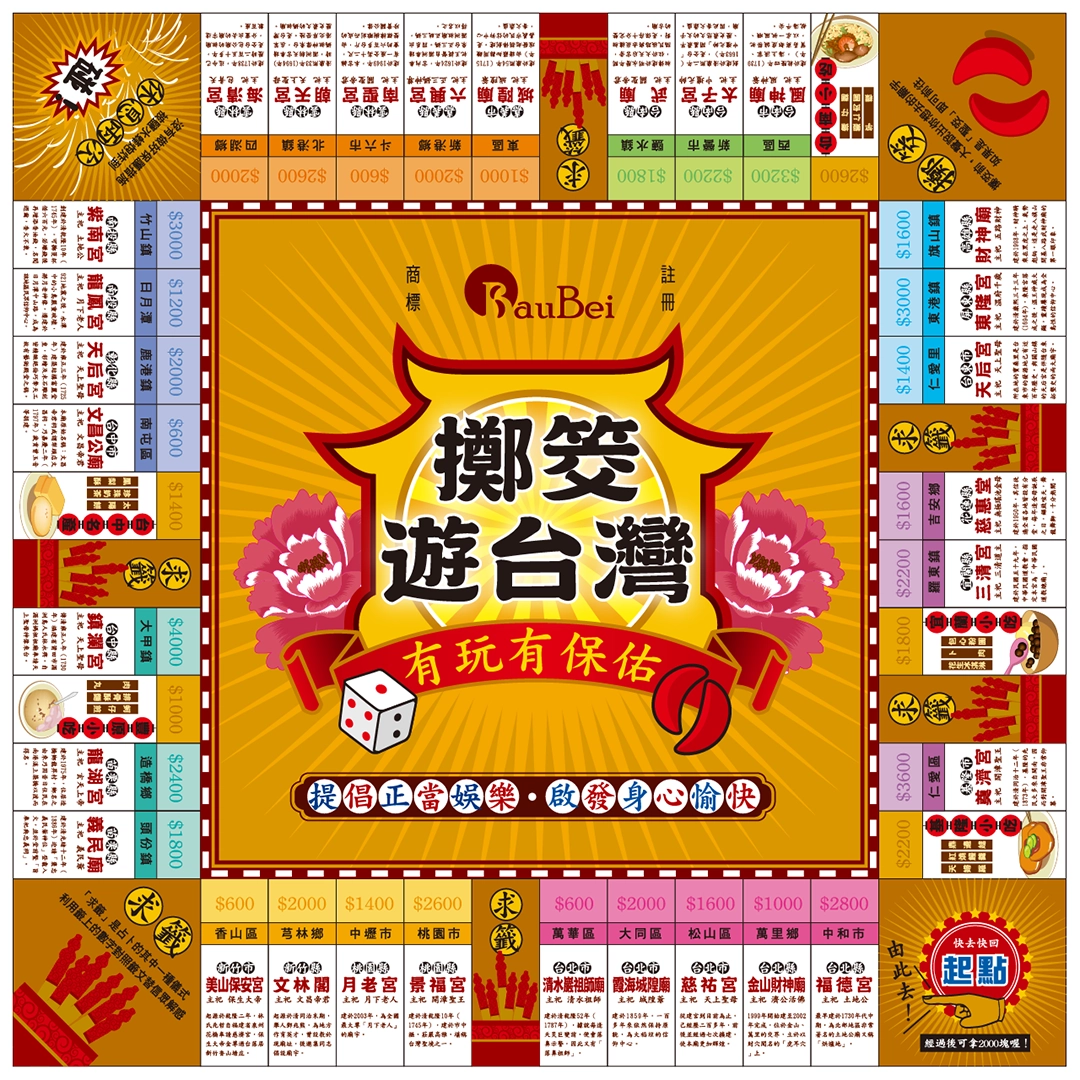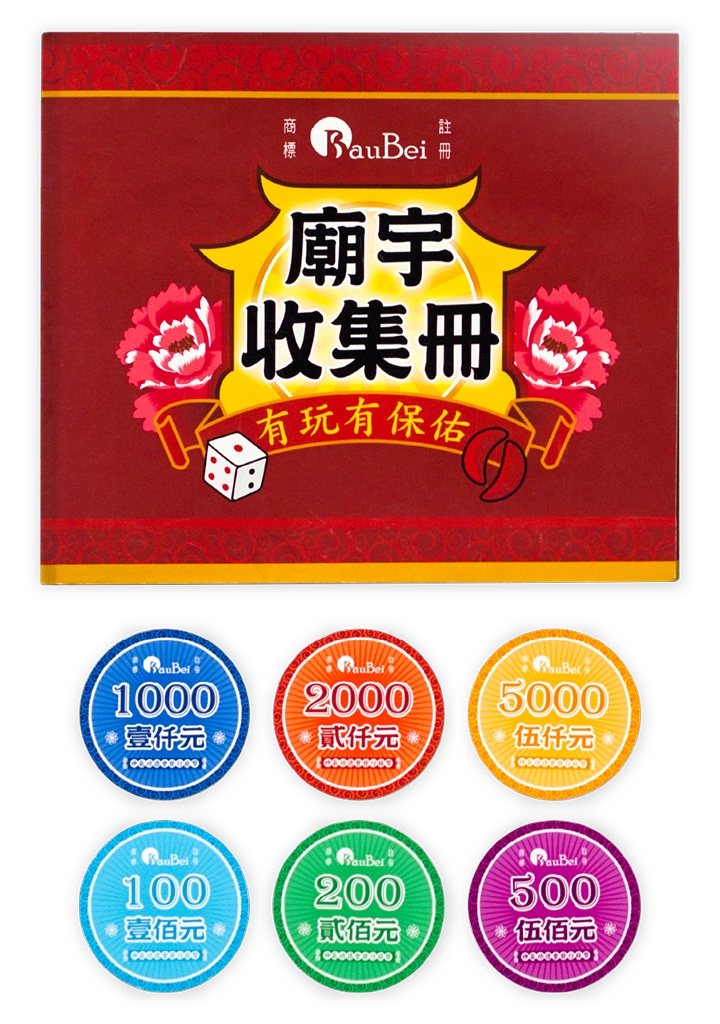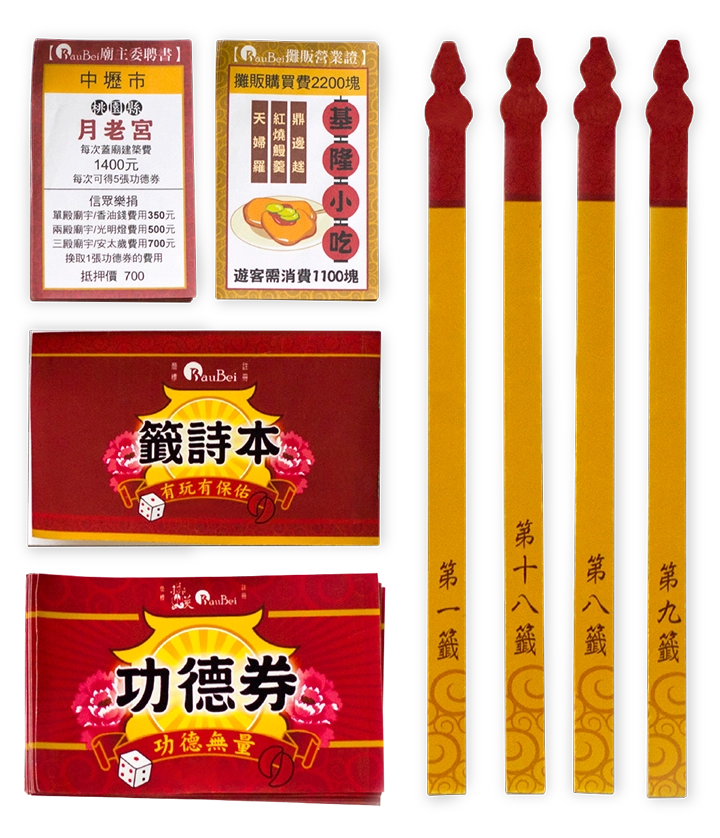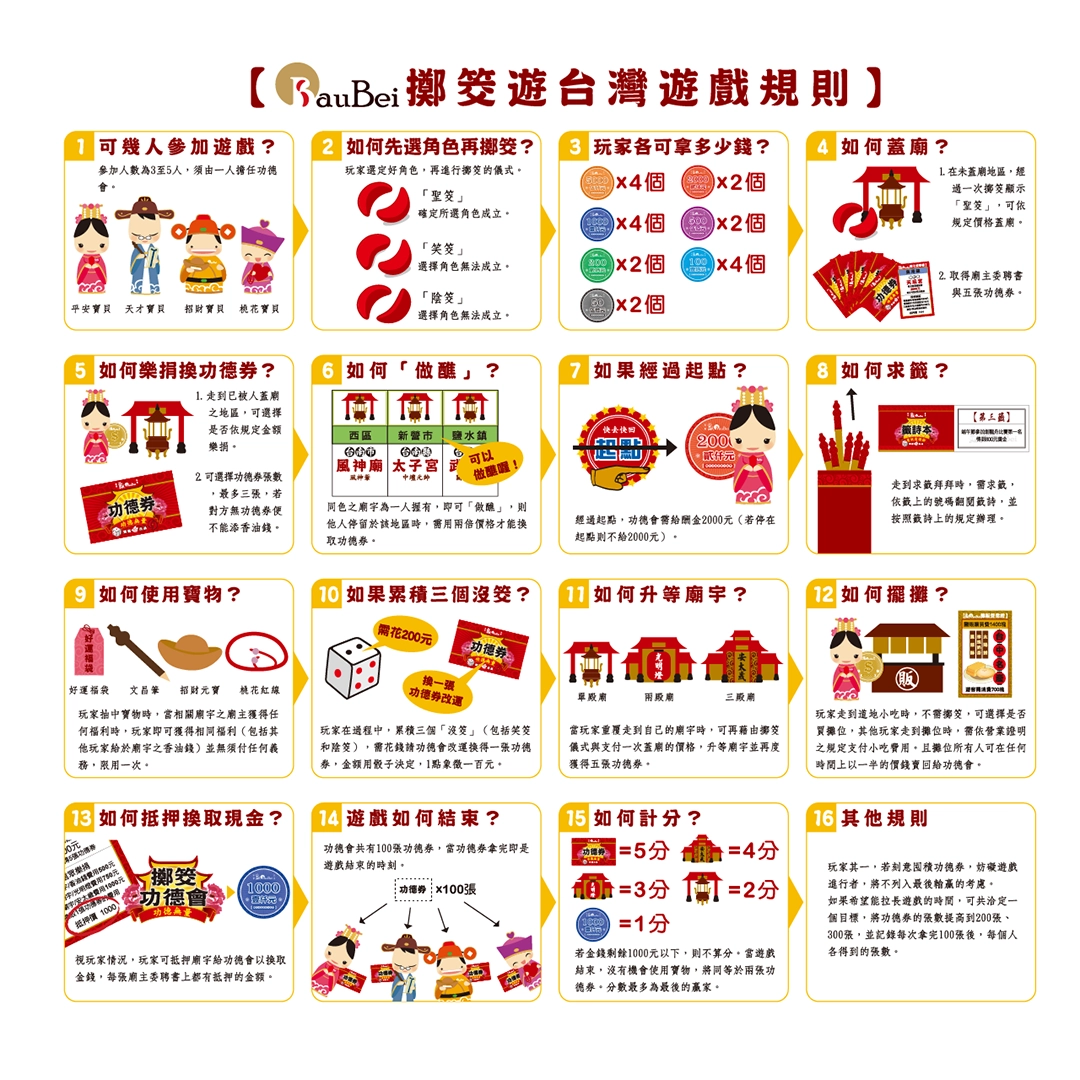BAUBEI
BAUBEI is a brand named in Taiwanese, dedicated to conveying the values of traditional religious culture through children’s stationery. This time, BAUBEI commissioned us to design a Monopoly-style board game that integrates the religious culture and local snacks of various counties and cities in Taiwan. Therefore, in the design process, we not only focused on visual style but also carefully considered the game rules and components. It was a highly challenging project. Our ultimate goal is to use this board game to help modern children gain a deeper understanding of Taiwan’s traditional religious culture.
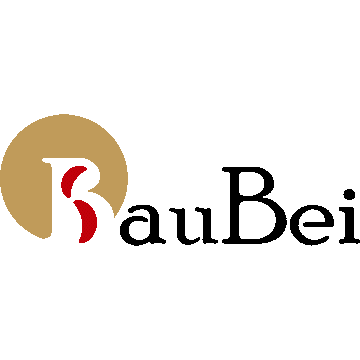

LOGO DESIGN
For the logo design, we began with imagery inspired by “BAUBEI,” “divination blocks (bwa bwei),” “deities,” and “Mazu,” developing 16 different logo concepts for the client to choose from. Each logo was thoroughly analyzed and presented with unique ideas and interpretations for consideration. In the end, we selected a logo that cleverly integrates the shape of the divination blocks into the letter “B,” using figure-ground reversal to create a design that is both creative and meaningful. This approach not only enhances the visual identity of BAUBEI but also preserves its deep cultural and religious symbolism.
STANDARD COLOR
In selecting the brand’s standard colors, we carefully chose two tones to convey a sense of warmth and festivity. Bright red (Pantone 200 C) reflects a strong connection to religious traditions while also evoking joy, and antique gold (Pantone 390 C) symbolizes classical elegance and celebratory spirit. These two colors form the primary palette of the brand identity system, representing BAUBEI as a joyful and harmonious cultural and creative brand.
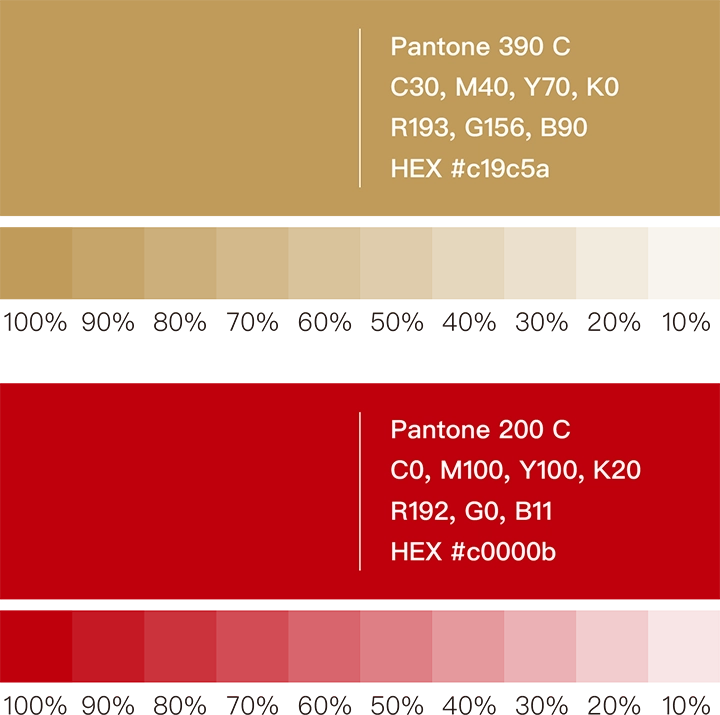
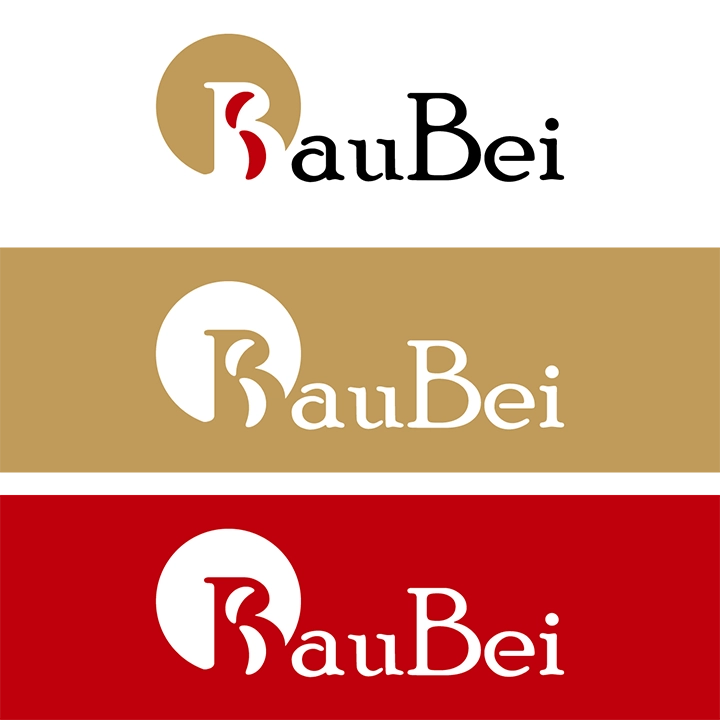
STANDARD FONT DESIGN
For the standard typeface design, we chose a bold brush-style font that is both classical and expressive. This font offers excellent visual clarity while embodying a strong sense of traditional aesthetics, making it highly suitable for titles on game components and instructions. At the same time, it establishes a consistent typographic standard, enhancing BAUBEI’s overall brand image and delivering a more cohesive and professional experience for customers.


VISUAL DESIGN
In the visual design, we carefully crafted four deity figurines as the game characters for this board game: “Mazu Baby,” who prays for smooth affairs; “Wenchang Baby,” who prays for academic success; “Caishen Baby,” who prays for prosperous wealth; and “Yuelao Baby,” who prays for blossoming romance. We deliberately designed these four deities with cute and playful appearances, hoping that young players will feel more immersed when playing these roles and resonate more deeply with the game experience.
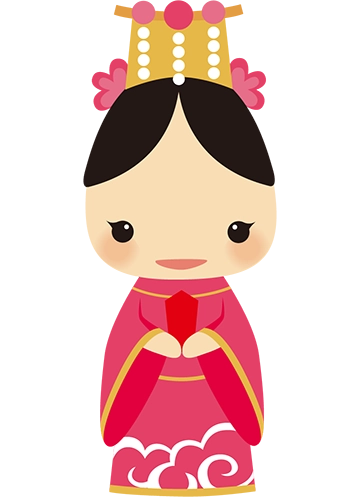

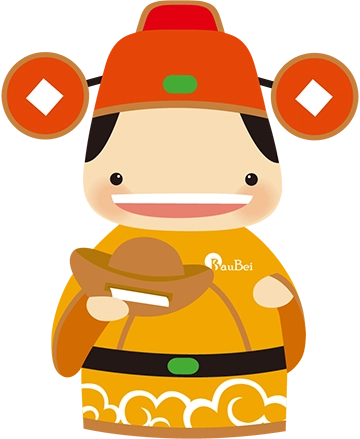

PRODUCT DESIGN
In the design of the game props and visuals, we focused on reflecting Taiwan’s retro aesthetic and playful spirit. For the Monopoly-style game board, we gathered the most well-known temples from northern to southern Taiwan and featured them as key landmarks, each accompanied by detailed descriptions. Additionally, we replaced the traditional “Chance” and “Community Chest” cards with culturally familiar items like the “divination stick holder” (qiān tǒng) and “bwa bwei” (divination blocks). Unlike typical games that emphasize financial gain, the ultimate goal here is to see who donates the most money or builds the most temples. Through these game mechanics, we aim to encourage children to embrace generosity and gain valuable insights into Taiwan’s traditional religious culture.
